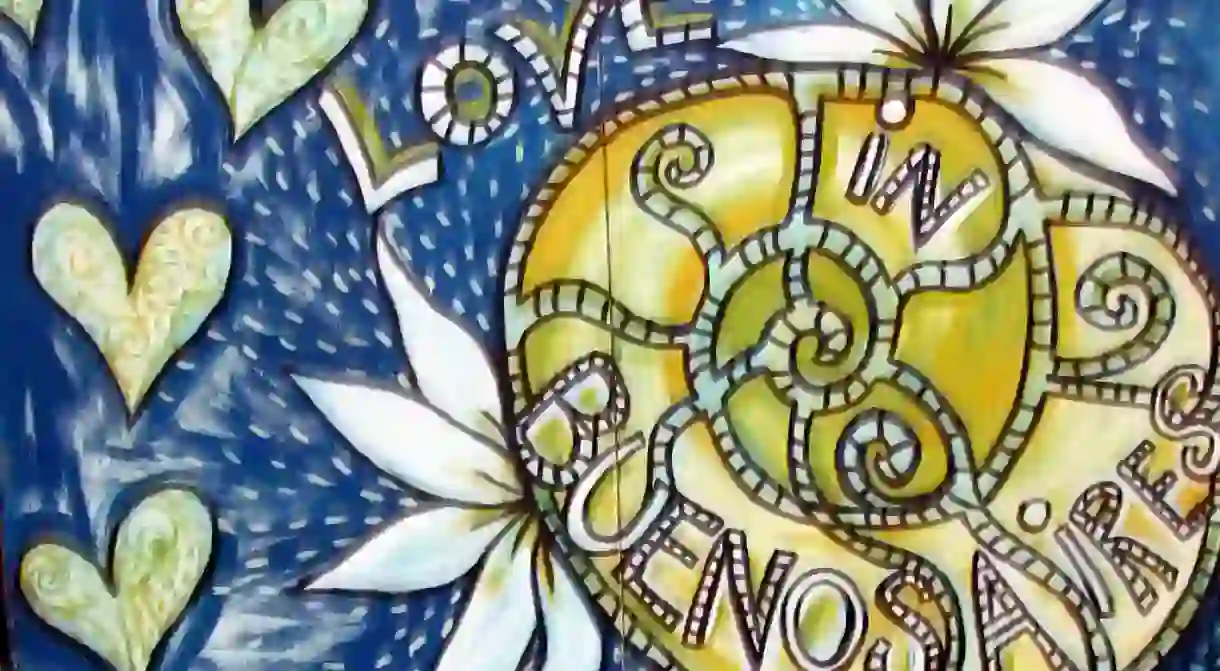6 Reasons Why You Should Visit Buenos Aires at Least Once in Your Lifetime

Buenos Aires is unlike any other city you’ll visit in your life. Why is that? Hard to say. Maybe it’s the combination of South American flair and European elegance that makes the Argentine capital stand out. From the French-influenced tango music to the Spanish-inspired “picada” appetizer plate offered at almost every restaurant in Buenos Aires, the modern-day Argentine capital offers quite a singular cultural experience. And if that’s not already enough to convince you to come, here are six more reasons to visit.
It’s crazy, in a good way
Buenos Aires is not for the faint-hearted. This is not just a reference to the city’s mind-boggling public transit system, which overwhelms most newcomers due to the sheer number of buses and variety of routes.
It’s deeper than that. People are intense here; life is intense here. Taxi drivers will pepper you with existential questions. Fruit-and-vegetable vendors will do a psychological profile of you, dropping seemingly-random questions about your life if you start shopping there regularly. Speaking of psychology, pretty much everyone sees a shrink. Even crazier, people still prefer to read real, physical books and sit in the parks, where they often sit and stare at nothing.

Then there’s the lifestyle. Most Argentines get by on little sleep, relying on mate (yes, it’s caffeinated) to power them through their many hobbies – as in, oh, it’s almost 11pm, time to go play soccer with my old high school buddies! Not that 11pm is considered all that late here, which is just more of the crazy.
In fact, Argentines talk about how Buenos Aires tends to make people histérico, or hysterical, a word that lacks the laughing connotation it denotes in English. Why is this? It may have to do with the fact that political and economic security is relatively new to Argentina. So the system, such as it is, is not really trusted. On a day-to-day level, this means that just walking around the city you’re likely to see things that will make you gasp or laugh – because when there’s a problem, Argentines tend to either put up with it (as in, we’re seriously doing this, guys?), or come up with some kind of (often bemusing) temporary solution.
Basically, you come here and it’ll make you crazy — in a good way.

It’s incredibly creative
You can feel it as soon as you set foot in the city; the creativity in Buenos Aires is palpable. This may or may not have to do with attempts to keep capitalist materialism at bay – you won’t find a lot of international chains here, nor is advertising all that savvy, maybe because people don’t have as much spending money anyway. It may or may not have to do with the way people choose to live here, favoring time with family and friends over killing themselves for job promotions. It may or may not have to do with the fact that any kind of creativity is encouraged here, no matter how incomplete, how “bad” (by professional standards) it may be, how raw, how weird or how different. If people want to put on a show, they rent out one of the city’s many small theaters, and they put on a show. It’s that simple. This may be why Buenos Aires has the best theater scene in the region. Overall, the art scene is remarkably vibrant — if in doubt, check this out.

It’s generous
The amount of free things you can do in Buenos Aires is astonishing. The city even has a “greeter” program, where people will show you around the city from a native’s point of view for free. Go to any city park and you’re likely to see people gathering for yoga or tai-chi classes, all likely offered free. Then there’s music, played live in so many restaurants, plazas and bars either free or a la gorra, which is Spanish for passing around a hat for donations. Want to take a class, or learn how to do something? Chances are you’ll be able to find something a la gorra, such as the hugely popular MUEVE dance program. It’s also socially acceptable much of the time to do an exchange, offering a skill you have for someone to teach or make you something.
It’s charming
Right?

This place knows how to have a good time
There’s lots of fun to be had in Buenos Aires, not least of which happens at night. Explore the city’s secret bars, check out the vibe in one of the city’s many bustling cultural centers, go to a closed-door restaurant, take a tango class – you name it, Buenos Aires probably has it, and if it doesn’t, Argentines will invent something on the spot that’s just as exciting. People party until dawn here all the time, so come visit and join the fun.
Caring culture
Buenos Aires is not one of those cities in which, in order to survive, you have to forget you’re human. If you run into trouble, people will notice and do something about it. They really care here. Many will go out of their way to help you out, be it helping you find your way somewhere, or giving you suggestions for places to go and people to meet – little things. If, for example, you get on a city bus, only to realise you don’t have enough money on your transit card, you can almost guarantee a kindly stranger will step forward and cover it for you. And they are unlikely to accept cash for their kindness. That’s because they believe in karma here: they’ll do something kind and not expect you to do anything in return, trusting that it’ll come back to them somewhere along the line, if not from you, from someone else. In short, the humanity here is what makes Buenos Aires a true joy, both to live in and to visit.













